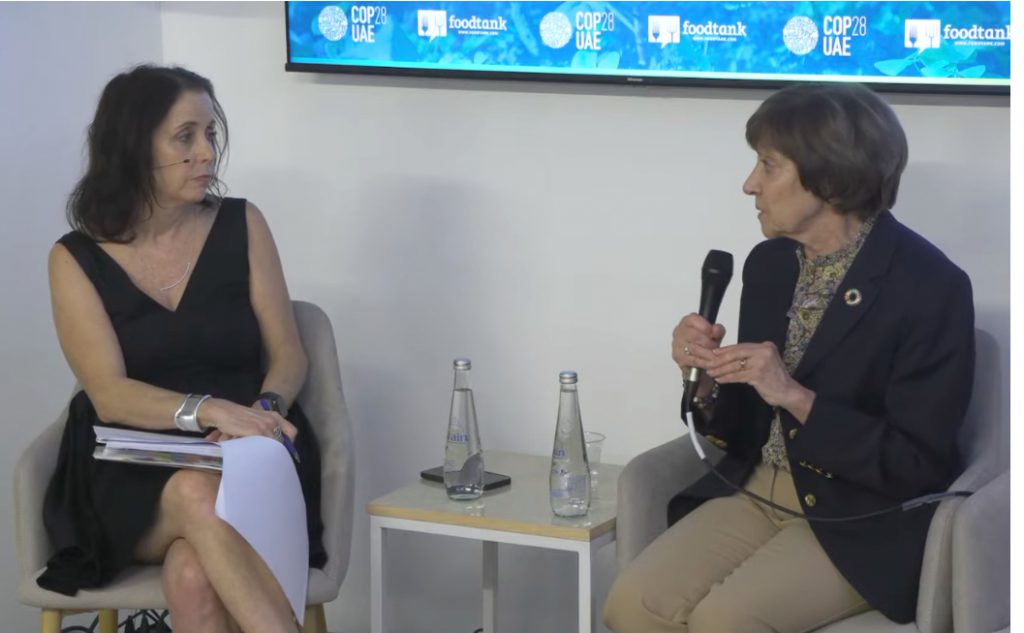During a recent session at the U.N. Climate Change Conference (COP28 in Dubai), CDFA secretary Karen Ross discussed the ways the climate crisis is affecting the state’s farmers and opportunities to overcome these challenges.
The conversation was organized by Food Tank in partnership with the Inter-American Institute for Cooperation on Agriculture (IICA), Producers Trust, and the Forum for Farmers and Food Security (3FS) at the Sustainable Agriculture of the Americas Pavilion.
Since becoming Secretary in 2011, Ross explains that she has lived through two historic droughts in California. In addition to water shortages, farmers are grappling with invasive species, extreme heat, and, when droughts are not an issue, flooding.
“We’re living our future and our future is happening now,” Ross says. “This is why it’s so important that we work together and think about how we continue to nourish people in a changing climate. And status quo isn’t going to do it.”
Interventions are important not only for farmers’ livelihoods, but for the state as a whole. According to Ross, even before value-added products are taken into account, the value of the state’s agriculture sector is just under US$56 billion.
To support producers, The state is eyeing the groundwater basin. “Recharging,” Ross says, “is the only way for us to survive in the future. It’s that below ground storage, above ground storage, using every drop as preciously as we possibly can, and recycling.”
The CDFA is also investing in climate-smart agriculture practices in an effort to scale their adoption. Cover cropping, composting, and the planting of hedge rows for pollinators are particularly attractive, Ross says. “These are things to build up resiliency. Healthy soils that continue to be productive, that are adding soil organic matter…[they are] improving the nutrient cycling and the biodiversity.”
And while the climate crisis will affect all producers, Ross is mindful that the ability of producers to adapt varies considerably, and smaller farmers are more likely to struggle. Around 70 percent of producers are growing crops on less than 100 acres of land, Ross says. “It’s very important to focus on those people who don’t have the same level of resources to withstand the shocks to the system.”
Watch the full conversation below.



